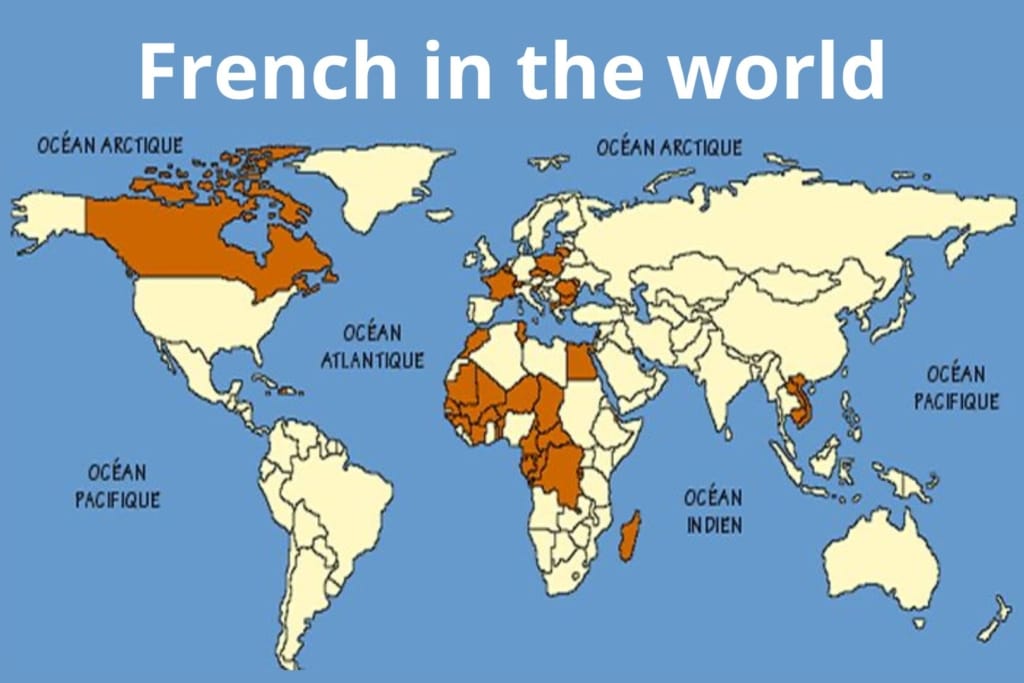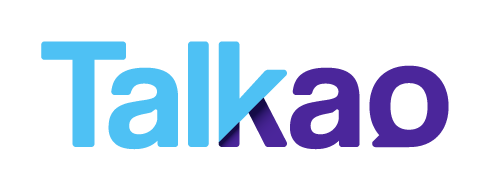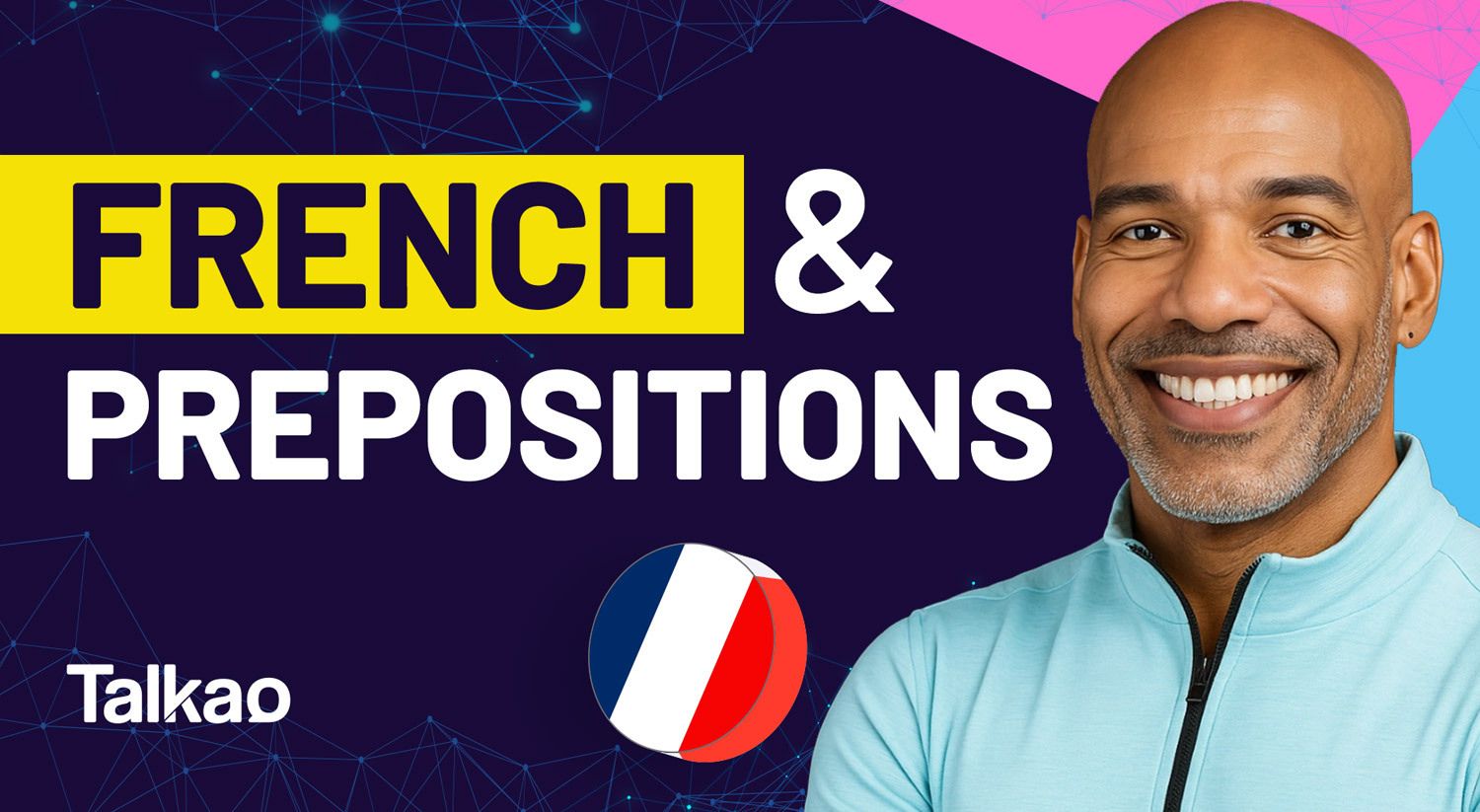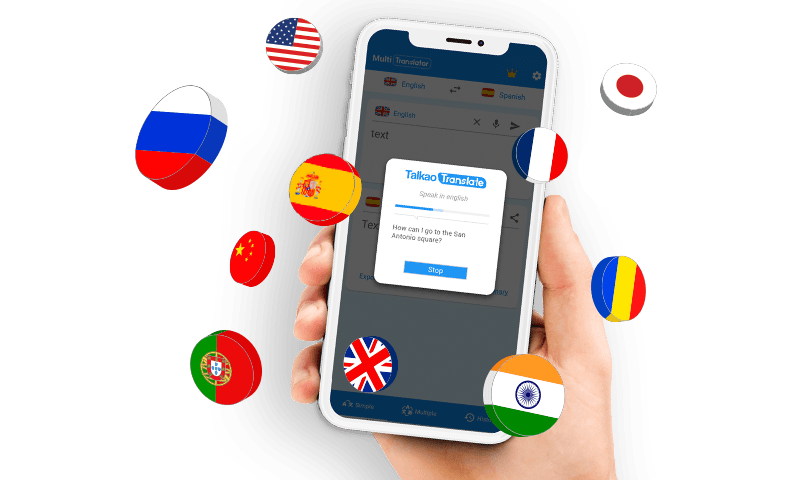
It’s no secret that speaking French connects us with one of the most influential languages in world history. Learning it allows you to explore the language of love, poetry, and the arts. But beyond its romantic allure, speaking French opens the doors to France’s rich cultural heritage and historical legacy.
France has played a major role in shaping modern society—not just in the realms of art and philosophy, but also in business, diplomacy, and international relations. The French language has long been a key player on the global stage.
However, for many learners, French pronunciation remains one of the biggest challenges. That’s why in Episode 6 of the Talkao Podcast, we dive into practical tips and expert techniques to help you speak French more fluently. You’ll discover helpful pronunciation tricks that will help you “loosen your tongue” and feel more natural when speaking.
We’ll also explore how AI-powered language recognition technology can accelerate your learning and improve your pronunciation in real time. Whether you’re just starting out or looking to refine your skills, this episode is packed with valuable insights.
In the end, you’ll feel more confident speaking French—the language of love: le langage de l’amour.
How important is speaking French today?
You probably already know that speaking a second language is no longer a luxury reserved for a few. In today’s globalized world, knowing multiple languages has become an absolute necessity. And among the many languages you could choose to learn, French stands out for its cultural, historical, and professional value.
Speaking French gives you access to one of the most influential cultures in the world. Beyond its artistic and cultural prestige, learning French can benefit you in countless areas of life—from personal development to new career opportunities. Let’s take a closer look at some of these opportunities, based on insights from our French language expert.
French as a global language
More than 300 million people around the world speak French—across five continents. French is an official language in over 30 countries in Europe, Asia, the Americas, Africa, and Oceania. It is also a working language in key international institutions such as the United Nations and the European Union.
French is one of the few languages taught in nearly all education systems worldwide. Additionally, it’s a core language in contextual translation algorithms and language recognition technologies, which keeps French highly relevant in the digital age.
Learning to speak French opens doors not just in France, but also in Switzerland, Belgium, Canada, many African countries, and several islands in the Caribbean and Oceania. In short, French is a cultural and professional passport that connects you to the world.
The influence of French in culture and the arts
It’s nearly impossible to talk about culture, fashion, film, or cuisine without thinking of France. Historically, French has been associated with art, elegance, and sophistication. It is also the language of literary giants such as Victor Hugo, Marcel Proust, and Albert Camus—writers who have left an undeniable mark on world literature.
Knowing French also gives you access to cinematic and theatrical masterpieces in their original language. French has a unique musicality that has charmed international audiences for generations. It is also a key language in global music, fashion, and entertainment.
More than just enjoying great names or works, speaking French allows you to appreciate cultural pieces in their original form, capturing nuances and subtleties often lost in translation. So if you’re a lover of the arts and humanities, French is a powerful tool that will deepen your cultural experience.
A practical language for science and education
While English dominates the global academic landscape, French remains a key language in scientific research and higher education. As mentioned earlier, it plays a major role in language recognition and AI-powered translation technologies. It’s widely used in scientific publications, particularly in fields such as medicine, biology, and mathematics. Alongside English and Spanish, French is one of the top three languages integrated into contextual translation systems.
Furthermore, if you plan to study abroad, France is home to some of the world’s most prestigious universities, such as Sorbonne University and École Polytechnique. Many academic programs are offered entirely in French, giving you access to top-tier educational institutions.
Beyond France, other French-speaking countries—such as Canada and Belgium—require fluency in French as a condition for academic admission. Mastering French not only boosts your academic credentials but also allows you to study, research, and collaborate with leading institutions worldwide.
Beyond culture and knowledge
It’s true that French is often associated with arts, culture, and academia. However, today speaking French opens up many other doors, especially in more pragmatic and professional domains. From international trade and diplomacy to remote work and global partnerships, French can be the key to accessing high-level career opportunities.

Speaking French: The key to career opportunities in a francophone world
From a professional standpoint, learning French significantly boosts your job prospects. Many companies see fluency in French as a valuable and distinctive skill—especially in industries such as:
- Tourism and hospitality
- International trade
- Diplomacy
- Communications and marketing
- International relations
- Energy and environmental sectors
France and other French-speaking countries like Canada and Belgium are major global business players. Multinational companies headquartered in these regions operate across the world, and are constantly seeking professionals who can communicate fluently in French.
On the other hand, many businesses from non-Francophone regions are looking to expand into French-speaking markets. Economic opportunities in parts of Africa and the Caribbean are emerging as golden prospects for global companies.
French as a strategic asset for career growth
At the same time, career advancement is pushing many independent professionals to turn to French as a strategic tool for the future. In today’s competitive world, being multilingual transforms professionals into high-value assets across various industries. One of the most notable fields is international relations. Here’s why.
French in the field of international relations
Historically, French was the language of diplomacy. While English may have surpassed it in global usage, French remains an official language of numerous international institutions, including:
- United Nations (UN)
- International Olympic Committee
- World Trade Organization (WTO)
- International Court of Justice
- African Union
- Council of Europe
Learning French opens doors to positions in diplomatic, legal, and international administrative fields. In addition, many NGOs and international cooperation agencies require French proficiency during their hiring processes—offering yet another pathway to career growth on the global stage.
Now that we’ve explored the commercial, artistic, and professional dimensions of the French language, it’s time to dive deeper into the language itself—its unique features and how to master them.
Unique features and common challenges when learning French
Without a doubt, mastering any new language comes with challenges—but learning French has its own specific nuances. This beautiful language not only opens professional and cultural doors, but also stimulates your mind and broadens your global perspective. However, as you may suspect, it’s not always an easy road. Pronunciation, grammar rules, and cultural differences can feel overwhelming at first.
That’s why in Episode 6 of the Talkao Podcast, we reveal key strategies to overcome these obstacles. But first, let’s look at what makes French so tricky—and why many learners find it frustrating at the beginning.
Key features of French: Phonetics and pronunciation
One of the biggest challenges in learning French is its phonetic system. Unlike Spanish, French includes nasal vowels, fluid intonation, and many silent letters. Some common examples include:
- femme (woman), pronounced /fam/
- beaucoup (a lot), pronounced /boku/
Mastering these sounds takes time and consistent practice. Listening to French daily, repeating phrases aloud, and using multimedia tools will help you improve your pronunciation and listening comprehension.
Complex spelling in gender and number
French spelling doesn’t always reflect how words are pronounced—many written letters go unspoken, and archaic spellings are still present.
Accent marks like é, è, ê, and ç also play important roles in meaning and pronunciation. Learning to spell correctly in French takes time and effort.
Like Spanish, French nouns have grammatical gender—but the gender doesn’t always align between the two languages. For instance:
- «La mano» (the hand) is feminine in both Spanish and French (la main)
- «El problema» (the problem) is masculine in both (le problème)
Still, mismatches between languages can cause confusion. Agreement between subjects, adjectives, and verbs, especially in compound tenses, also requires close attention.
Irregular and auxiliary verbs
One of the most difficult grammar points in French is its verb system, especially irregular verbs like être (to be) and avoir (to have).
These auxiliaries are used to form compound tenses, such as passé composé—but there’s no strict rule about when to use which. You’ll need to memorize case by case.
Luckily, language recognition technology and contextual translation algorithms, like those used in AI apps, can help you detect and understand these differences automatically.
Grammar with rules—and plenty of exceptions
Learning French grammar takes patience—but it’s far from impossible. In fact, if you speak Spanish or Italian, you already have an advantage. These Romance languages share similar structures, including:
- Gendered nouns
- Verb tenses
- Definite and indefinite articles
Still, French grammar has unique elements you’ll need to grasp early on:
- Complex agreement between subject, verb, and object—especially in compound forms
- Frequent use of reflexive pronouns in everyday expressions (se lever, s’appeler)
- Different auxiliaries (avoir or être) depending on the main verb
- Frequent use of the subjunctive where Spanish wouldn’t require it
You’ll also need to master formal vs. informal speech, especially with personal pronouns: tu (informal) vs. vous (formal or plural), reflecting politeness and social hierarchy in Francophone cultures.
Common challenges for Spanish speakers
As a Spanish speaker, you already have a solid foundation for learning French. The shared alphabet, Latin roots, similar grammar structures, and related vocabulary all help.
However, you’ll also need to avoid some common pitfalls:
- False friends (faux amis): words that look similar in Spanish and French but mean different things. For example:
- Assister means to attend, not to assist
- Actuellement means currently, not actually
- Literal pronunciation: If you pronounce French words as you would in Spanish, you’ll likely be misunderstood. French requires a complete mental shift in how you listen and speak.
- Subjunctive mood and prepositions: French uses different sentence structures to express desire, obligation, or doubt. Learning when to use que, de, à, or en takes time.
The good news? Lexical similarities between Spanish and French offer a great head start. While grammar may feel similar at first glance, pronunciation is usually the biggest hurdle.
So, how can you improve your spoken French using language recognition technology? Let’s explore that next.

How to overcome the challenges of speaking French fluently
When you decide to learn French, one of the biggest challenges you’ll face is pronunciation. Unlike Spanish, French includes guttural and nasal sounds, silent letters, and a very specific intonation. These difficulties may seem overwhelming at first—but they’re completely normal and can be overcome with the right strategies.
Overcoming the main phonetic obstacles in French requires practical techniques that help you improve your pronunciation day by day. In this episode of the Talkao Podcast, we explore how to use language recognition technology to your advantage. With the support of contextual translation algorithms, speaking French fluently becomes easier and more accessible. But first, let’s review some of the main hurdles you’ll need to tackle.
Why is French pronunciation so challenging?
At first glance, many French words may look similar to their Spanish counterparts. However, as our expert points out, you’ll quickly notice major differences when pronouncing them. That’s because French has a rich and precise phonetic system, marked by:
- Nasal vowels (bon, pain, un)
- Silent letters (eau, eux, beaucoup)
- Prosodic accent that gives melody to phrases
- Consonants that shift sounds depending on context
Additionally, spoken French often doesn’t match its written form, which can be confusing for beginners. Let’s look at some of the most common difficulties in more detail.
Nasal sounds
For Spanish speakers, one of the first phonetic barriers is producing nasal vowels—a type of sound that doesn’t exist in Spanish. These are produced by allowing air to flow through the nose while pronouncing a vowel. Examples include:
- pain (bread)
- vin (wine)
- blanc (white)
To practice them, try closing your mouth and pronouncing the vowel so that the air exits through your nose, not your mouth. Listening to native recordings and repeating them regularly will help. Plus, contextual translation algorithms can help you track your progress and pinpoint your mistakes.
Open and closed vowels
As you learn to speak French, you’ll notice a key difference between open and closed vowels, such as:
- é (closed)
- è (open)
Although they look similar, this difference is essential for oral comprehension.
A useful tip: record yourself reading sentences with both types of vowels and compare them with native audio. With the help of language recognition technology, you’ll be able to identify errors more quickly and adjust your pronunciation effectively.
Silent letters
In French, many words end with letters that are not pronounced. For instance:
- petit is pronounced /pəˈti/
- beaucoup is pronounced /boˈku/
This can be confusing for learners who instinctively try to pronounce every letter, as they would in Spanish. That’s why it’s essential to:
- Memorize pronunciation patterns
- Listen closely to native speakers
- Use speech recognition tools to refine your spoken French
Effective techniques to improve your French pronunciation
One of the most powerful tools at your disposal is consistent exposure to the language. Listening to French every day allows you to absorb its rhythm, pauses, and sounds naturally. In this process, Talkao’s language recognition and translation technologies play a key role. In Episode 6 of the Talkao Podcast, you’ll discover some highly effective techniques such as:
- Listening to podcasts or videos with French subtitles
- Repeating full sentences, imitating native intonation
- Using the “shadowing” technique, where you repeat what you hear in real time
These methods are essential to improve your pronunciation, train your ear, and develop strong phonetic structures. But there’s more you can do:
Learn to use the International Phonetic Alphabet (IPA)
The IPA (International Phonetic Alphabet) is an invaluable tool for understanding the exact pronunciation of any word. By learning the most common symbols, you can figure out how a word is articulated without relying on spelling. This will greatly accelerate your progress and boost your confidence when speaking.
Practice with word games and scalable language challenges
Word games are a fun and effective way to build vocal agility and pronunciation accuracy. French tongue twisters are especially useful for practicing difficult sounds. Try this classic example:
“Un chasseur sachant chasser doit savoir chasser sans son chien.”
(A hunter who knows how to hunt must know how to hunt without his dog.)
Repeat it several times until it flows naturally—it’s a playful yet powerful exercise for your pronunciation muscles.
Tools powered by contextual translation algorithms
In Episode 6 of the Talkao Podcast, you’ll also explore how these smart tools act as a springboard for fluency:
- Talkao Translate: Learn accurate pronunciation from native speaker recordings and real-life French audio.
- Real-time translation: Speak in your language and instantly get the proper French pronunciation—perfect for interactive learning.
- Streaming translation: While watching live classes, movies, music videos or any other French-language content, you can practice pronunciation naturally. You can also reverse the process—translating your native language into French and learning how to say it correctly.
As our expert points out: Practice makes perfect. So if we could leave you with just one piece of advice, it would be this:
“Practice, practice, and if that doesn’t work… practice more!”








Newsletter